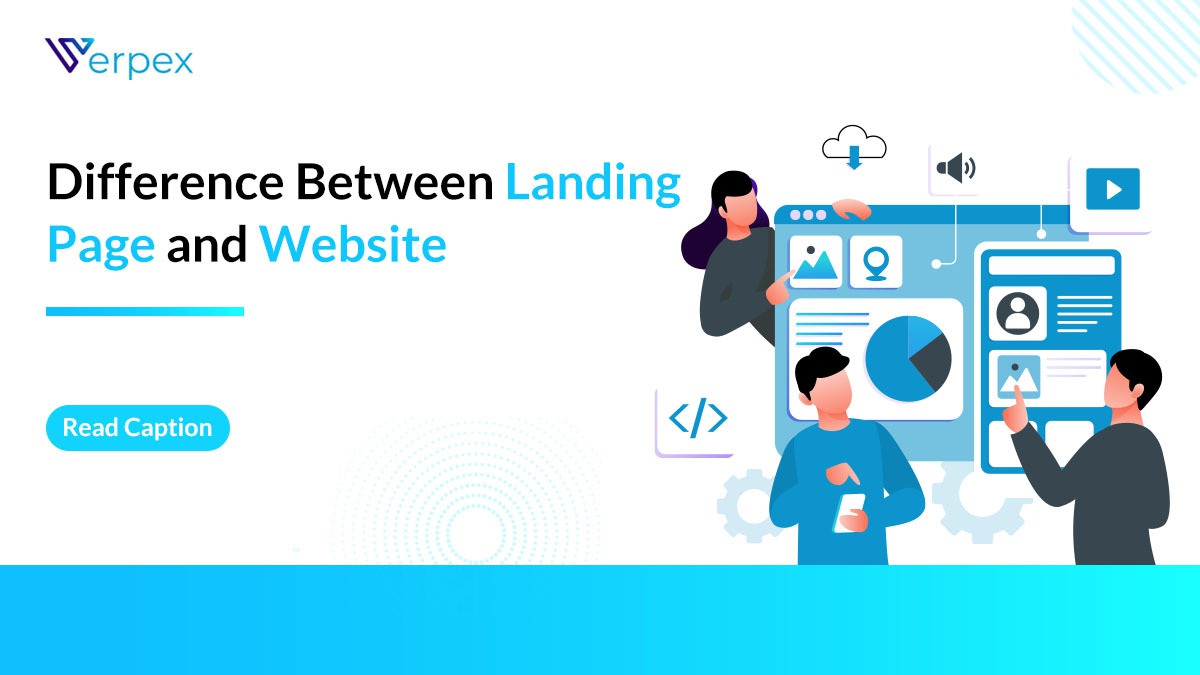People have a common misconception that a website and a landing page are the same! But the truth is that they have different purposes.
This article aims to provide readers with an understanding of what a landing page and a website are, the key differences between them, and when to use them.
What is a Landing Page?
A landing page is a single-page website designed to help drive conversions or sales by getting visitors to click on a link or sign-up for service from a sponsored search engine result, online ad, or promotional email.
You need a landing page when trying to achieve a focused goal like selling a product, getting email subscribers, or running ads. There are several use-cases for a landing page and different ways of building them, and each one has its unique benefit and goal.
Landing Page Types
1. Lead Generation Landing Page
A lead generation page captures visitor data for conversions or sales. They usually include a product offering or value proposition and how that benefits the visitor and then collect information from visitors like their name, email, company, and job title to use later in a mailing list or down the sales funnel.
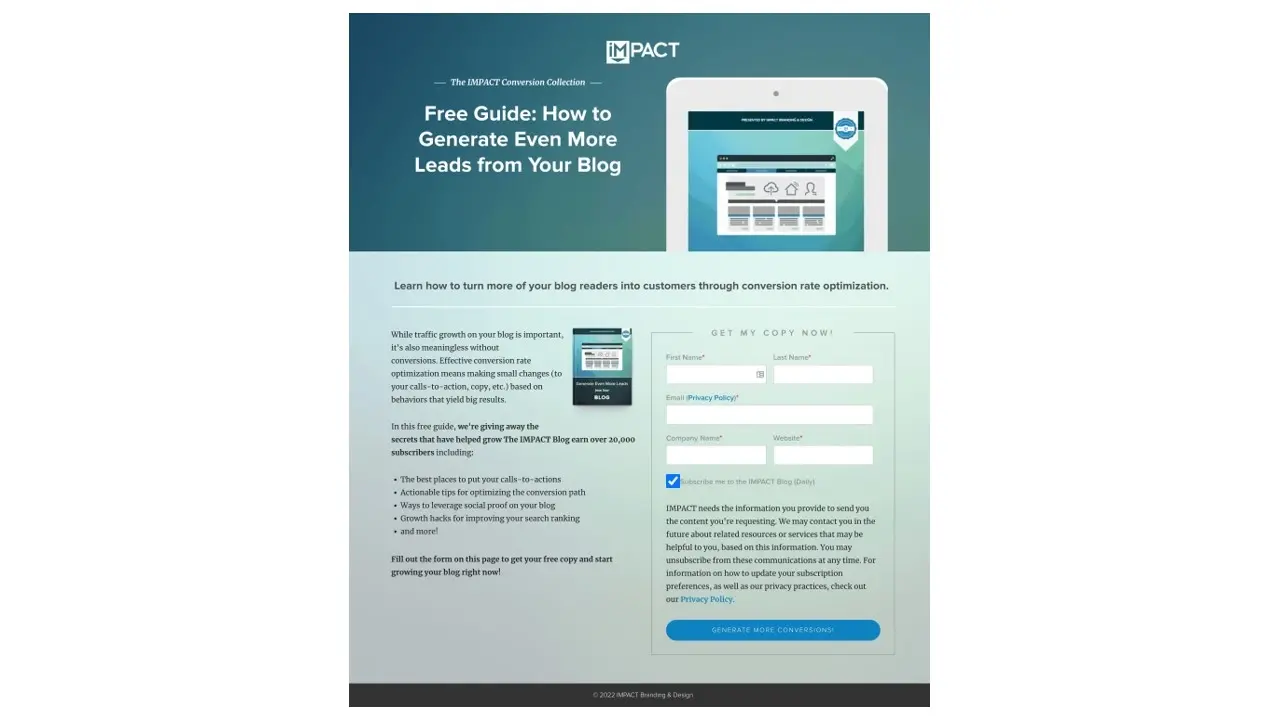
2. Click-Through Landing Page
A click-through landing page is typically used to gain visitor's trust by including enough information about the product and an offer or benefit that the visitor will gain if they continue by clicking the call to action button.
This page redirects visitors to the main lead capture page. When they click the CTA link, it'll take them to a different page requesting to make a purchase, collect their data or sign up for a product.
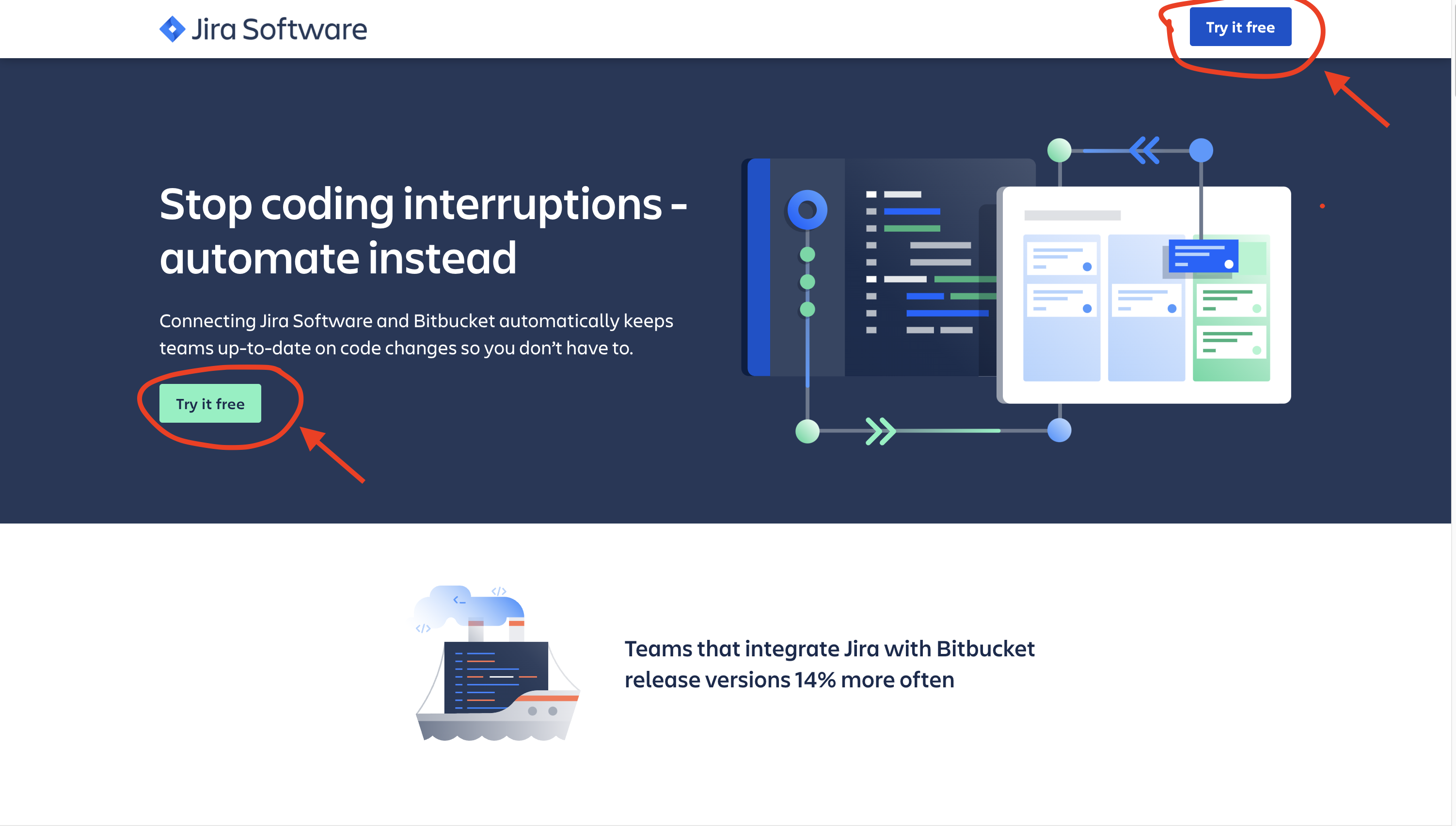
The example we have is Jira software's landing page. They have a compelling page with call-to-action buttons inviting visitors to sign up for the product.
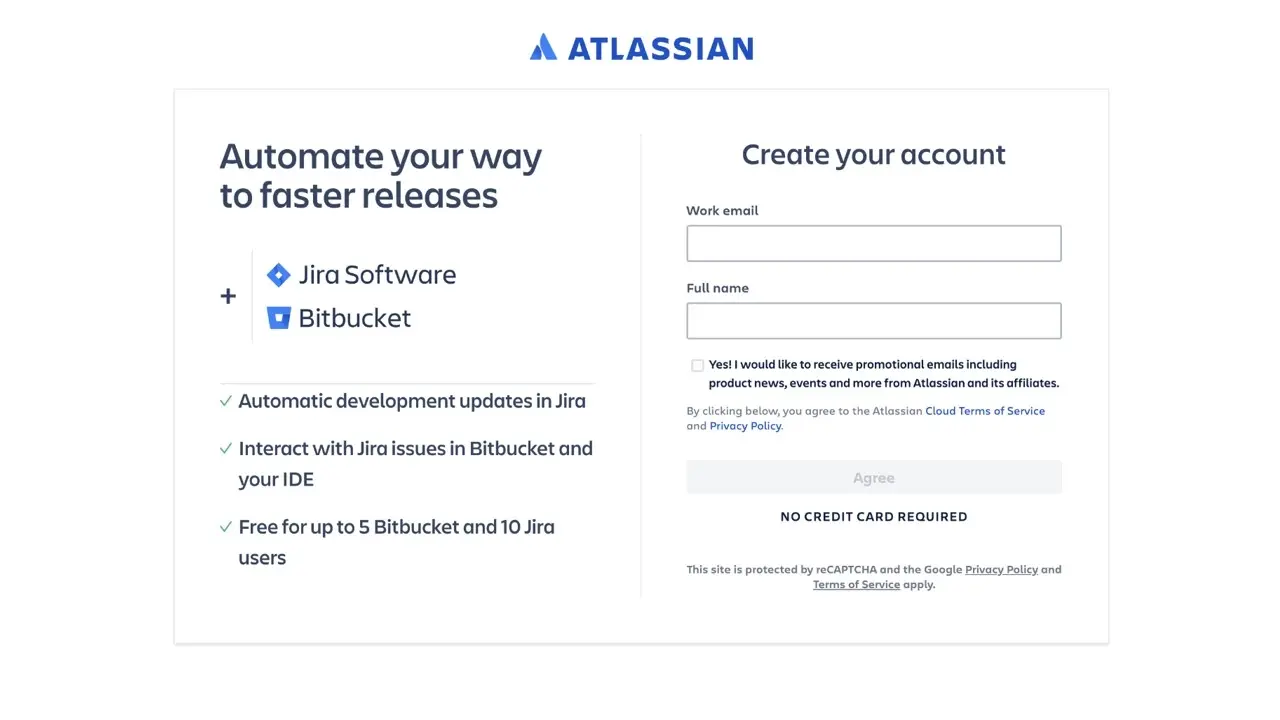
3. Sales Landing Page
A sales landing page is a different type of page, where visitors are presented with a product or multiple products with a call to action button to buy them directly from the page.
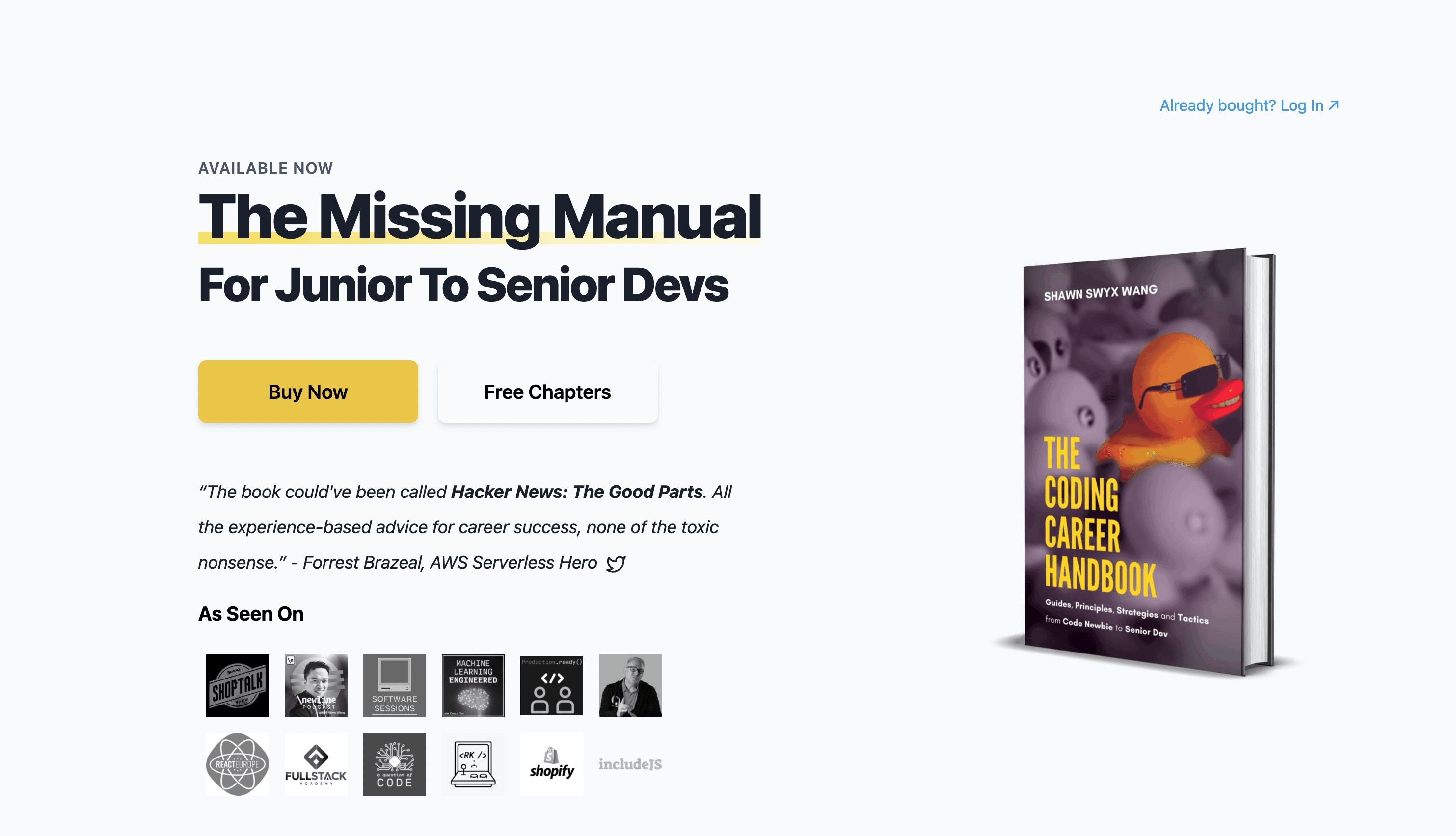
There's no need to ask for their information or convert them to a lead. Your primary goal is to sell a product, so it's essential to have that information only and what the product offering is for the visitor.
What is a Website?
A website is a collection of linked web pages that share a unique domain name and is published on the internet for anyone to access.
The goal of a website is to allow visitors to learn more about your business or company. A typical website can have more than two pages - About, Services, Blog page. This can also depend on what kind of website you visit.
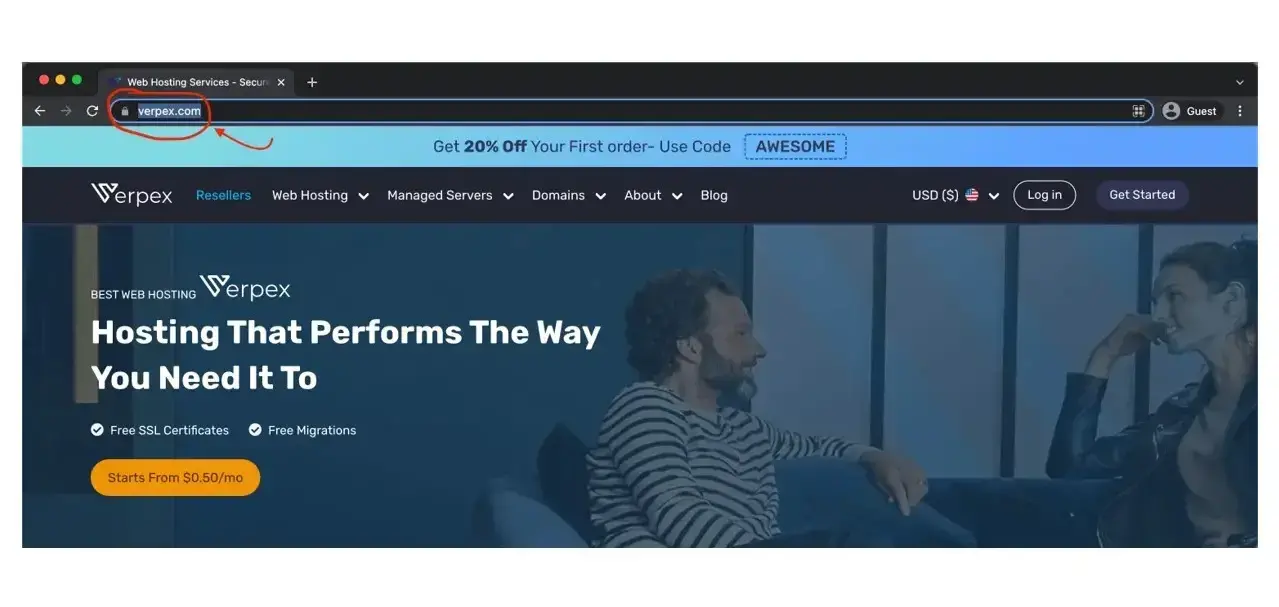
Take verpex.com, for example. To access this website, you had to enter a domain name in your browser's address bar, and the website's main page was displayed. There are several pages linked on the navigation bar for visitors to explore.
When should you create a Landing Page or a Website?
First, it might seem like creating a landing page or a website means the same thing, but having an idea of their differences will serve as a way of knowing when either one of them is needed. Having defined both terms, let's see their differences and when you should consider building either of them.
Difference Between Landing Page vs Website
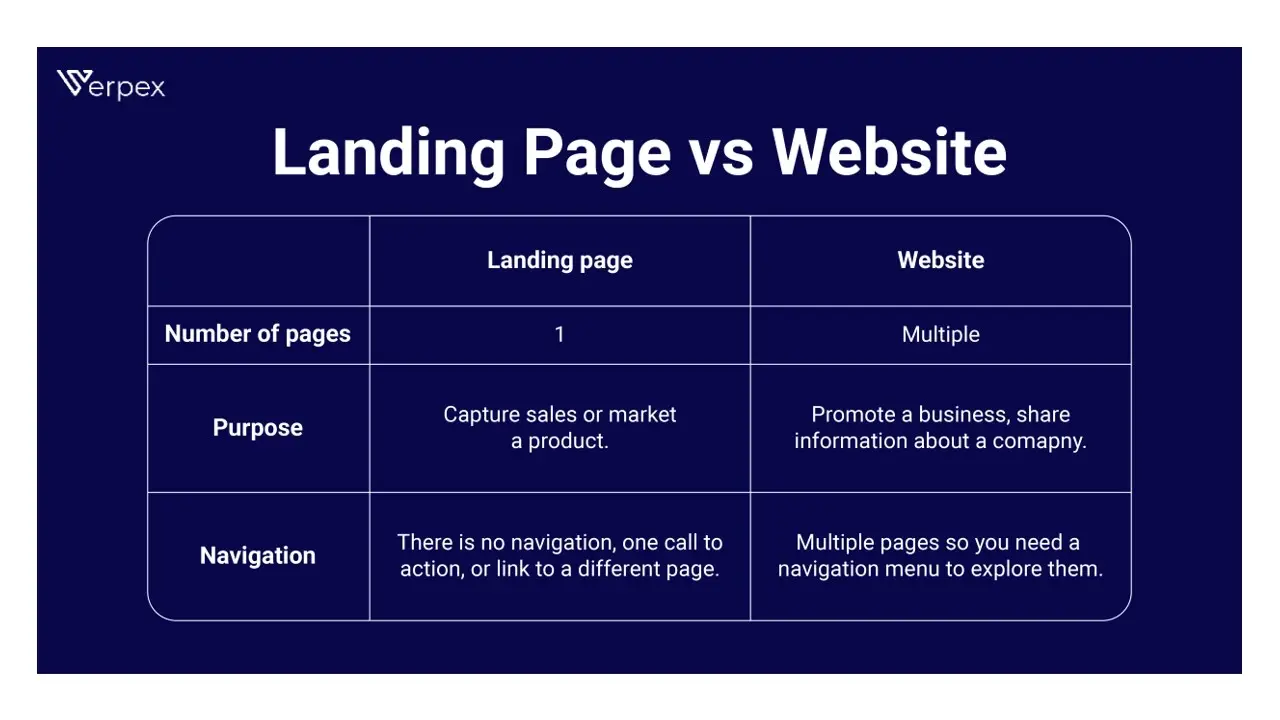
The Number of Pages
Landing Page only needs to have a single page. Most importantly, the page should have enough information about the product or service and a call-to-action for the visitor checking out the site.
On the other hand, a website can have multiple pages. It's common to see a website with different pages like an about, services, and a blog page. The primary goal is to share information about the business or product.
Purpose
The primary purpose of a landing page is to drive sales or generate leads. You need a landing page if you're thinking of selling a product, starting a mailing list, promoting an event, etc.
On the other hand, a website is used to describe your business brand and share information about your services.
Navigation
Landing pages don't have any navigation, and they are single-paged sites. They don't need to include additional pages, but they can contain a form for capturing visitor's data or a call to action link to an external page.
On the other hand, a website always has navigation links to other pages like the contact, about, or blog page.
Conclusion
A landing page and a Website both have different use cases. One is for driving sales or visitors conversion, and the other for sharing information about a company or business. It's possible to have a landing page and website for the same brand but knowing when to have this use case is very important.
Overall, I hope this article has helped clarify the difference between a landing page and a website, and you can now tell them apart when you see them.
Frequently Asked Questions
Why should I create a website?
There are many reasons why you should create a website if you’re an artist. You can use it to create a place where people can learn about you, talk about your art, or show off your work.
Does a website need hosting?
Yes. In order for a site to be accessed by outside users, it needs to have website hosting.
Can I host multiple websites?
Yes. Some packages even give you unlimited domains. However, the more you host, the slower your speeds will be.
Are website builders easy to use?
One of the easiest ways to build a website is with a website builder. Using a website builder doesn't require any programming and coding skills.

Gift Egwuenu is a developer and content creator based in the Netherlands, She has worked in tech for over 4 years with experience in web development. Her work and focus are on helping people navigate the tech industry by sharing her work and experience in web development, career advice, and developer lifestyle videos.
View all posts by Gift Egwuenu















